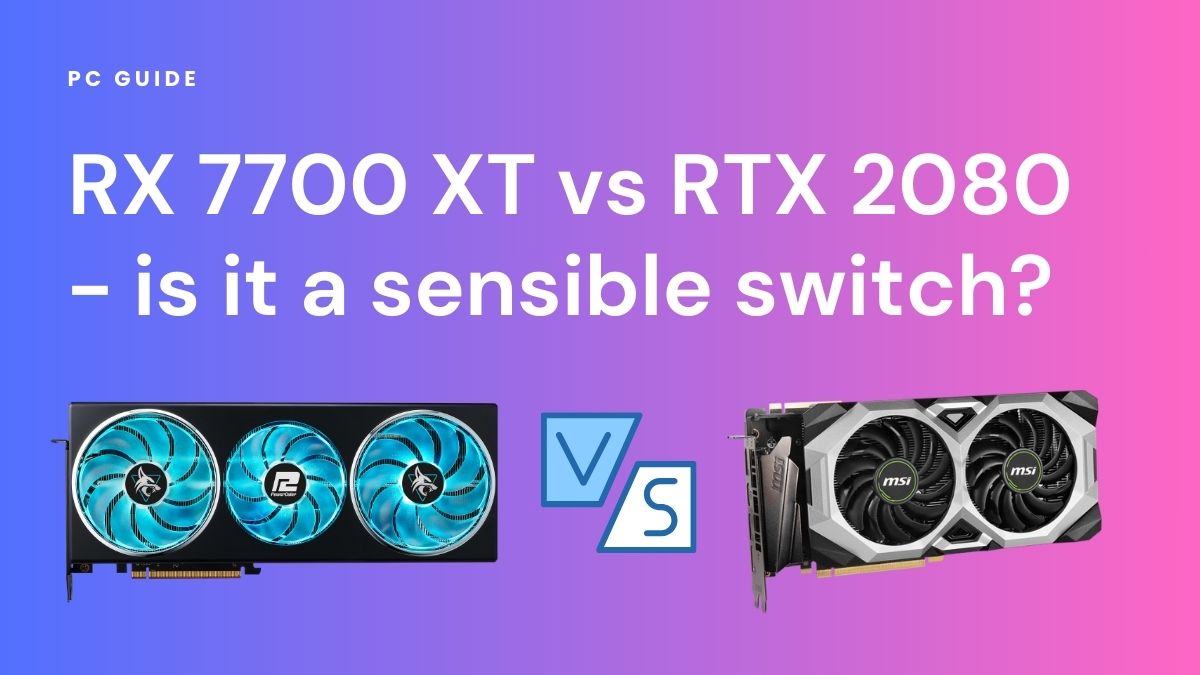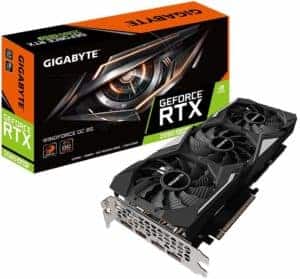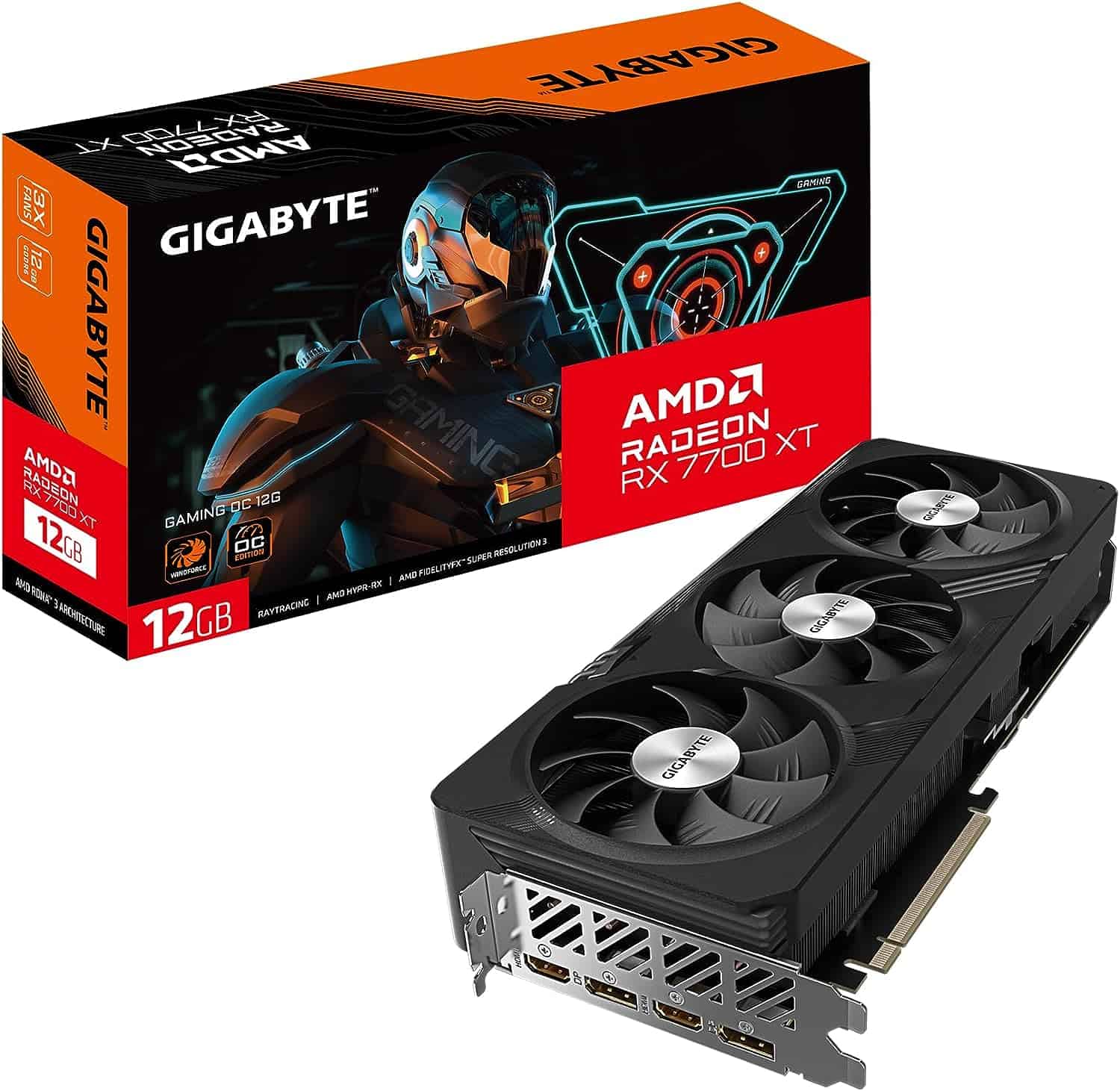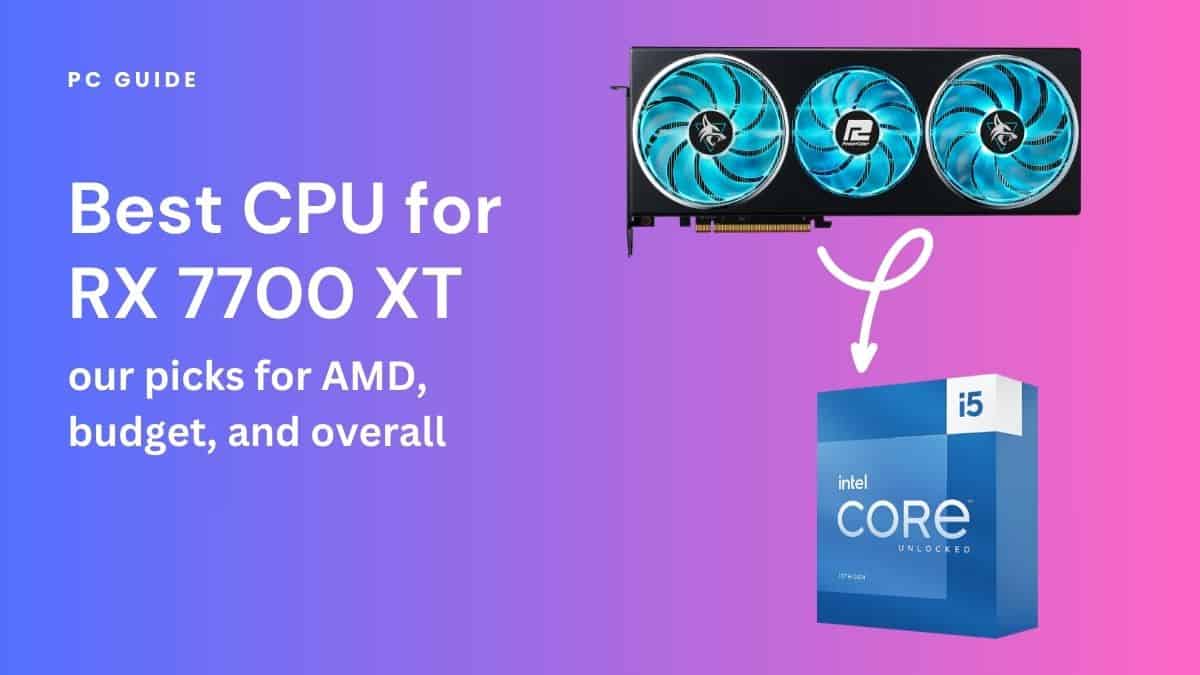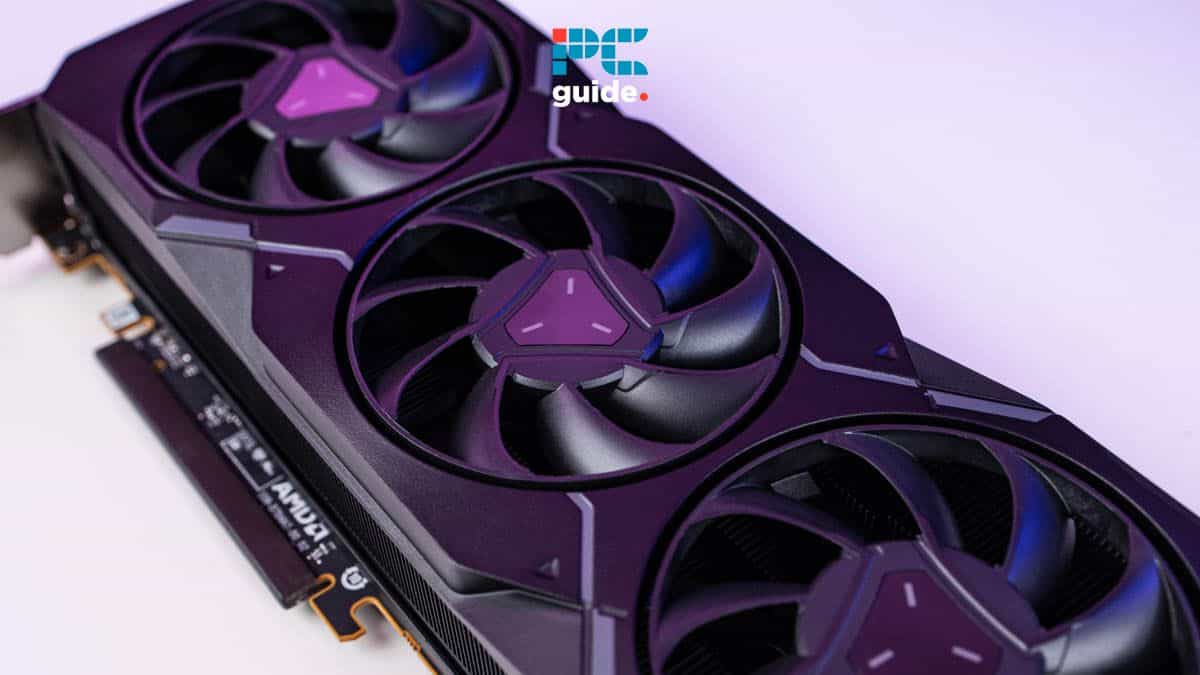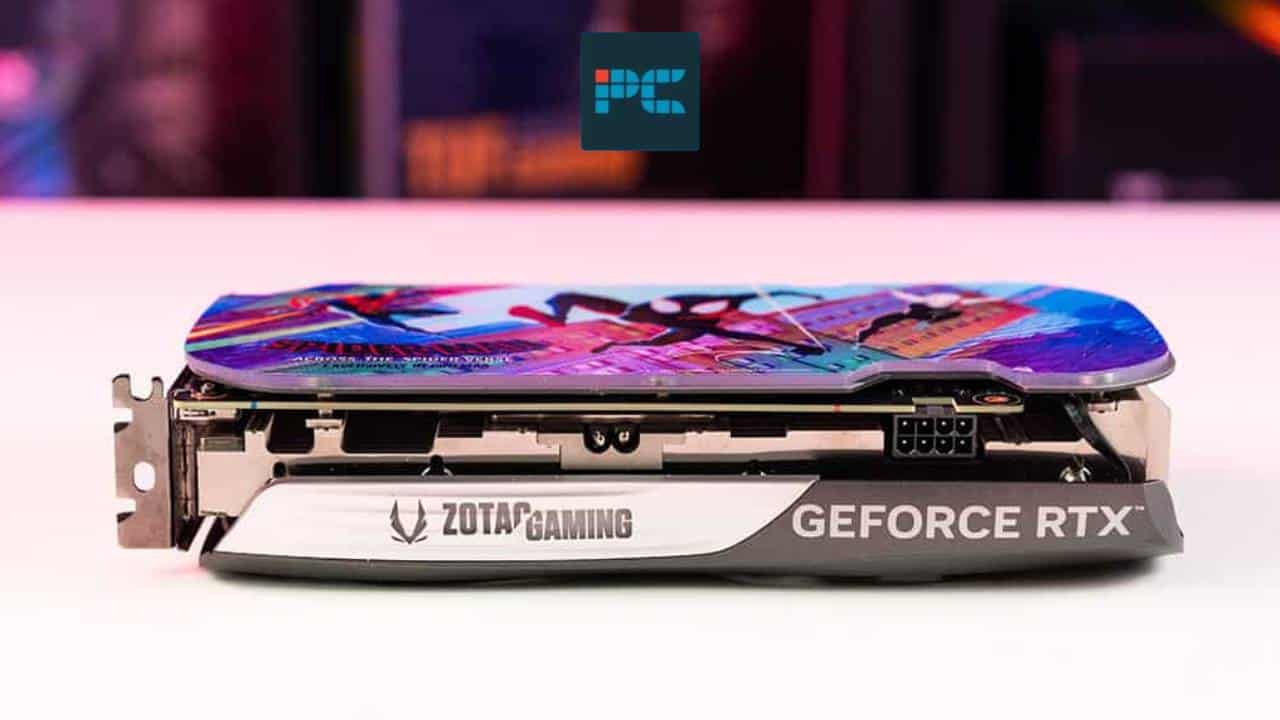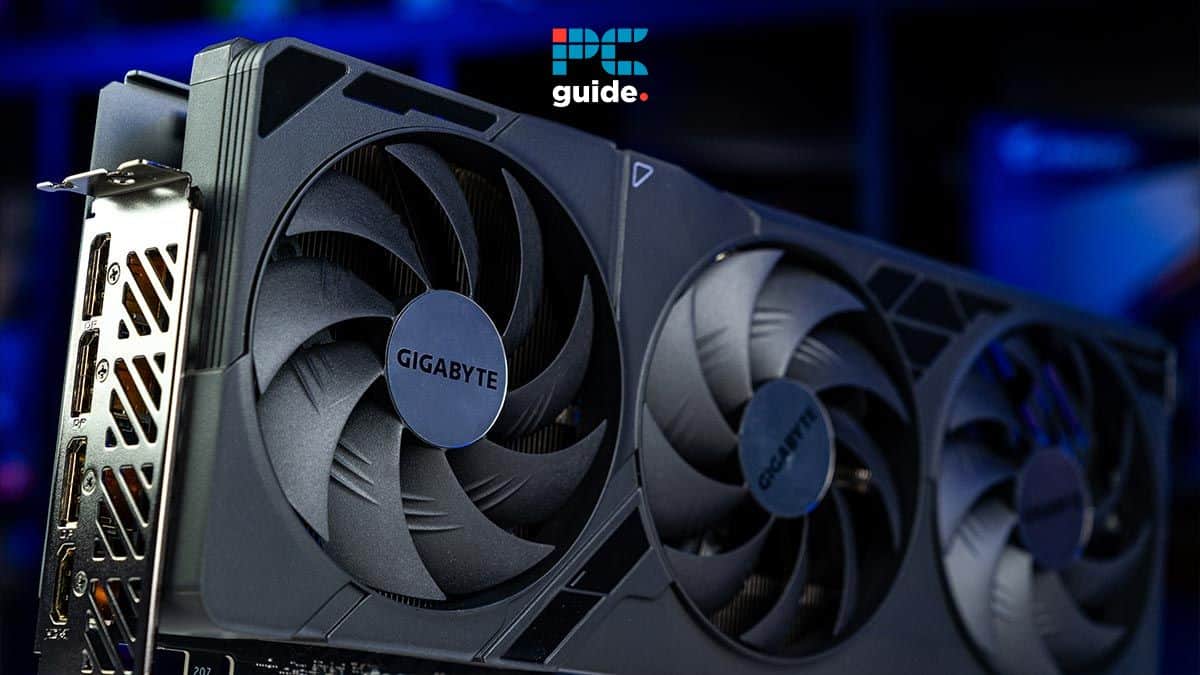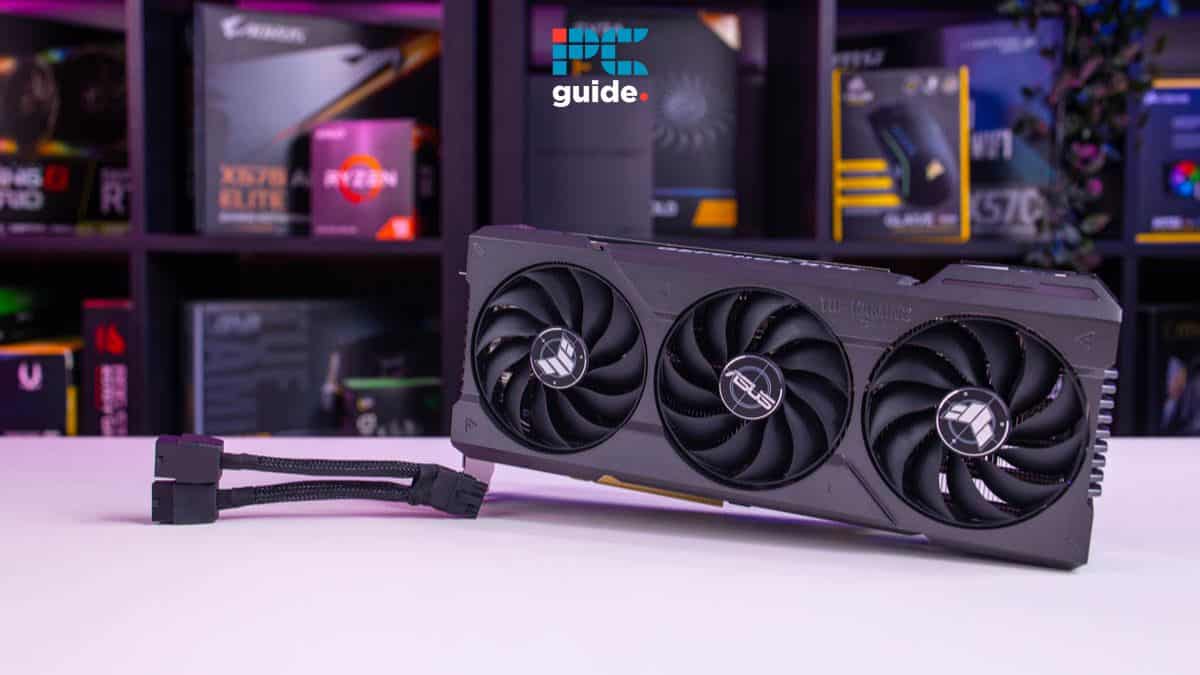In this article, we will compare AMD’s latest addition to its 7000 series to a high-end NVIDIA staple, looking at the RX 7700 XT vs RTX 2080. While the RTX 2080 may be two generations old, it remains a formidable contender, especially as it introduced the mainstream world to the marvels of ray tracing. Now, it’s time to assess how this pioneering NVIDIA GPU measures up against AMD’s Radeon RX 7700 XT.
Although the RX 7700 XT takes the lead as a next-gen card, it’s interesting to see how far has GPU technology taken us, and how prices compete now against old GPU prices. Keep reading to find out how these graphics cards hold up when going head to head.
RX 7700 XT vs RTX 2080: Specifications
When comparing the specs of the AMD Radeon RX 7700 XT and the Nvidia Geforce RTX 2080, a few key differences become evident. Diving into it, one of the most prominent distinctions between the 7700 XT and the 2080 is the RT Accelerator count. The RX 7700 XT boasts 54 RT Accelerators, overshadowing the RTX 2080’s 46. This difference ensures that the RX 7700 XT can potentially deliver better real-time ray tracing performance, a critical aspect of modern gaming graphics.
Another notable discrepancy lies in the cores and VRAM. The RX 7700 XT possesses a core count of 3456 stream processors, slightly surpassing the RTX 2080’s 2944 Cuda cores. Additionally, the 7700 XT takes the edge with 12 GB of GDDR6 VRAM, compared to the 2080’s 8 GB. This extra memory could prove essential in handling high-resolution textures and more demanding games. However, the 7700’s 192-bit memory interface lacks compared to the superior 256-bit memory bandwidth of the RTX 2080, meaning the latter is primed to perform faster in tasks demanding high memory bandwidth.
| Specs | RX 7700 XT | RTX 2080 |
|---|---|---|
| Architecture | RDNA 3.0; Navi 32 | Turing; TU104 |
| RT Accelerator | 54 | 46 |
| Cores | 3456 | 2944 |
| VRAM | 12 GB GDDR6 | 8 GB GDDR6 |
| Memory Interface Width | 192-bits | 256 bit |
| Memory bandwidth | 432.0 GB/s | 448.0 GB/s |
| Process Technology | TSMC 5nm | TSMC 12nm |
| Base clock speed | 2171 MHz | 1515 MHz |
| Boost Clock speed | 2544 MHz | 1710 MHz |
| Graphics Card Power (TDP) | 245W | 215 W |
| L3 cache | 48 MB | 0 |
| MSRP | $449 | $699 |
One of the main components that might give the AMD RX 7700 an advantage over the slightly older 2080 card is its implementation of next-gen GPU architecture. The Turing architecture of the Nvidia GPU was a pioneer of ray tracing performance, tensor cores for AI acceleration, and DLSS technology, which was impressive back when it was released in 2018. However, RDNA 3 brings next-gen features to the table. It has dedicated AI acceleration with Wave MMA (matrix multiply-accumulate) instructions, as well as other upgrades like AMD Infinity Cache for improved bandwidth and better color accuracy with AMD Radiance Display Engine.
Lastly, there’s a remarkable difference in the process technology and clock speeds. The RX 7700 XT utilizes the more advanced TSMC 5nm process, ensuring better efficiency and performance than the RTX 2080’s older TSMC 12nm process.
When it comes to clock speeds, the RX 7700 XT significantly outpaces its competition with a base clock of 2171 MHz and a boost clock speed reaching up to 2544 MHz, versus the RTX 2080’s 1515 MHz base and 1710 MHz boost. This disparity reinforces the RX 7700 XT’s position as a powerhouse in the GPU market.
RX 7700 XT vs RTX 2080: Performance
Drawing from AMD‘s claims, the RX 7700 XT truly exhibits its muscle in performance metrics. Notably, if the RX 7700 XT genuinely doubles the performance of the 2070 Super, then its domination over the RTX 2080 seems plausible, especially when comparing their underlying specs.
Beyond these numbers, the architectural advantages of the RX 7700 XT, paired with more advanced process technology, contribute to its elevated performance levels, making it a formidable contender in the GPU market. We’ve outlined some of our top picks of processors with the best CPUs for the RX 7700 XT.
Some tangible results shed light on this disparity: in games like “Call of Duty: Modern Warfare 2,” the RX 7700 XT reached a commendable 106 FPS, while it managed 79 in “Hogwarts Legacy” and 63 in “Star Wars Jedi: Survivor.” These figures starkly contrast the RTX 2080’s capabilities, which, according to various public benchmarks, can muster roughly half of these frame rates. In terms of power consumption, the 7700 takes a bit more out of your rig than the 2080, with 245W compared to 215W from the older card.
It’s worth noting that while benchmarks provide a quantitative measure of performance, the real-world experience of fluid gameplay, minimal lag, and crisp visuals underscores the RX 7700 XT’s prowess. With newer titles pushing the boundaries of graphical fidelity, the RX 7700 XT seems better equipped to handle the future of gaming.
RX 7700 XT vs RTX 2080: Price
The price is another pivotal factor that strengthens the RX 7700 XT’s competitive edge. Despite the RTX 2080 being two generations old, its cost remains on the higher side, making it less enticing to value-driven consumers.
When comparing the MSRP, the RX 7700 XT, which has a launch price of $449, is undeniably the more attractive proposition, offering an impressive performance-to-price ratio. The 2080, with an original price tag of $699, doesn’t quite present the same value, especially considering its age and comparative performance.
RX 7700 XT VS RTX 2080: Conclusion
After meticulously analyzing the RX 7700 XT and RTX 2080 across various facets, the RX 7700 XT emerges as the undisputed victor in this matchup. With a superior architecture, commendable performance figures, and an appealing price point, the RX 7700 XT is positioned as an ideal choice for gamers and professionals seeking a potent GPU setup without breaking the bank. It’s also marginally cheaper than the other 7000 series card released by AMD, the RX 7800 XT.
While the RTX 2080 was a formidable contender in its prime, it now faces stiff competition from newer, more efficient models like the RX 7700 XT. For those deliberating on a GPU purchase, the RX 7700 XT offers a harmonious blend of parameters including performance, value, and future readiness. If you’re looking to compare the 7700 XT to more favorite cards on the GPU market, we’ve also got the lowdown on the RX 7700 XT vs the RTX 4060 Ti.


